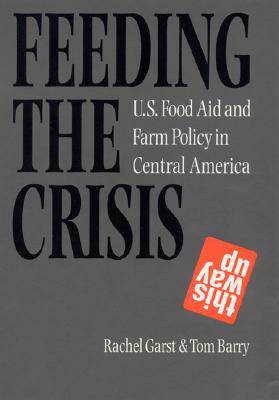
- Afhalen na 1 uur in een winkel met voorraad
- Gratis thuislevering in België vanaf € 30
- Ruim aanbod met 7 miljoen producten
- Afhalen na 1 uur in een winkel met voorraad
- Gratis thuislevering in België vanaf € 30
- Ruim aanbod met 7 miljoen producten
Feeding the Crisis
U. S. Food Aid and Farm Policy in Central America
Rachel Garst, Tom BarryOmschrijving
The findings of Garst and Barry are disturbing. They discovered that increased U. S. food aid to Central America is being used to achieve short-term foreign-policy objectives that undercut long-term U. S. interests. The authors reveal that, instead of being allocated on the basis of need, U. S. food aid is being used to support military programs; and that it is distorting Central American economies by reducing production of and prices for local crops, by benefitting agribusiness at the expense of small farmers, and by encouraging new consumption habits that neither family incomes nor national treasuries can sustain. For recipient governments, food aid has become a permanent solution instead of an emergency measure. Garst and Barry charge that the Agency for International Development and U. S. Department of Agriculture are partly to blame for this state of affairs. They make detailed recommendations for changes in the way food aid is administered, changes that are urgently needed to stem the negative social, economic, and political effects of programs that until now have largely been shielded from scrutiny.
Specificaties
Betrokkenen
- Auteur(s):
- Uitgeverij:
Inhoud
- Aantal bladzijden:
- 275
- Taal:
- Engels
Eigenschappen
- Productcode (EAN):
- 9780803260955
- Verschijningsdatum:
- 1/12/1990
- Uitvoering:
- Paperback
- Formaat:
- Trade paperback (VS)
- Afmetingen:
- 140 mm x 216 mm
- Gewicht:
- 425 g

Alleen bij Standaard Boekhandel
Beoordelingen
We publiceren alleen reviews die voldoen aan de voorwaarden voor reviews. Bekijk onze voorwaarden voor reviews.











